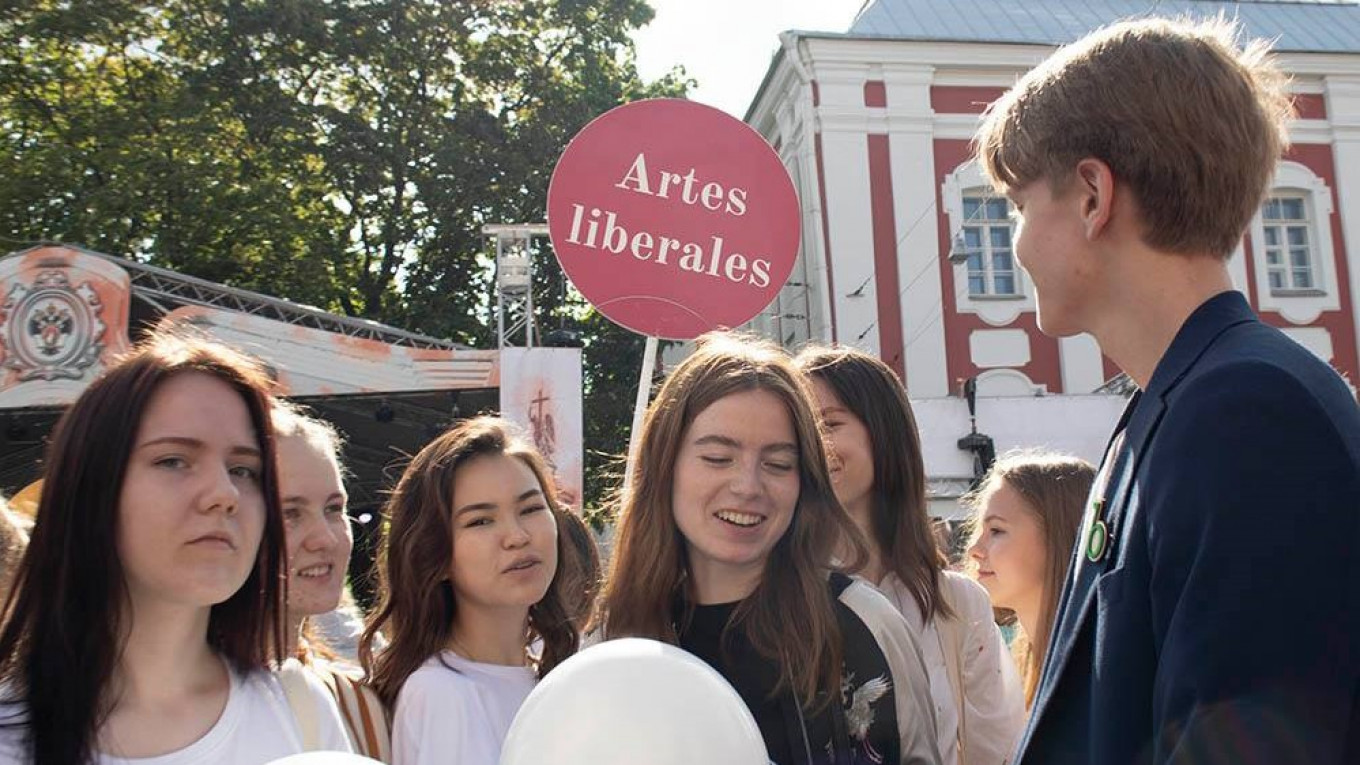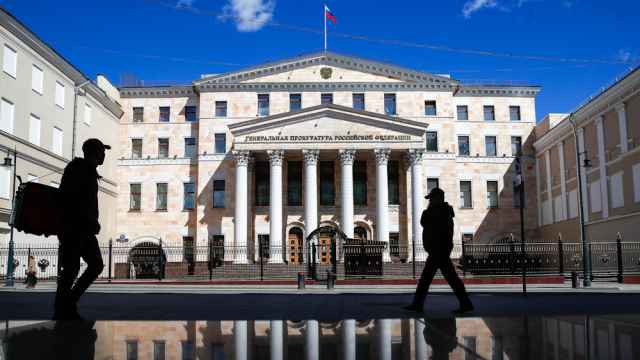Valentina Andreeva graduated in 2018 with degrees in economics and music, one from St. Petersburg State University and one from Bard College in the U.S., which co-founded the Russian institution’s liberal arts faculty.
“You can travel, you can study and you can make friends from all over the world, not only from the U.S.,” she said of her experience.
Such experiences are likely to become relics of the past after Russia’s Prosecutor General’s Office on June 22 labeled the prestigious U.S. college an “undesirable” organization, accusing it of “threatening the foundations of the constitutional order and security of the Russian Federation.”
Under the designation, any individual or organization associated with Bard — which could theoretically include lecturers and individuals holding Bard degrees — now face up to four years in prison simply for being a member of an “undesirable” group.
They could also face up to six years in prison if found guilty of “carrying out the activities of an undesirable organization” on Russian soil.
The day after the “undesirable” designation was announced, St. Petersburg State University terminated its agreements with Bard and wiped information from its website about the partnership between the two, which dated back to 1997.
For the 700 or so Russian and American students enrolled in the dual-degree program, which has been running at the Russian university’s Smolny College since 2011, the move heralds the end of one of Russia’s only liberal arts colleges — and an avenue for life-changing cultural exchange.
“It’s a big loss for everyone,” Andreeva said. “And I love Bard because they always tell students that, no matter what happens around the world, we are students and we love each other. No matter what nationality you have, no matter what gender you have… That’s really important.”
“The education at Smolny, and at Bard especially, is an eye-opening experience,” said Marfa Veselova, a 2016 graduate of the Bard-Smolny program.
“Every day when you come back home from university, you're full of experience and communication with different people from the U.S. or from Europe,” she said.
Paths of study
In addition to exchanging ideas and opinions with her American peers, Veselova said she benefited from Smolny College’s liberal arts education, which allows students to customize their paths of study and take courses in a wide range of disciplines.
Jonathan Becker, Vice President for Academic Affairs and Director of the Center for Civic Engagement at Bard, said the end of its ties to St. Petersburg State University equals “the end of the most robust partnership between a U.S. and Russian higher education institution.”
“The exchange part of the partnership focused on students learning with and from each other, not just about each other: It brought thousands of Americans and Russian students together in the classroom, in musical and theatrical performances, in conferences and debates,” he said.
Current students contacted by The Moscow Times declined to comment for this story.
Smolny College’s troubles began in March, as work began on reorganizing the college into a separate university with plans to expand its enrollment and partnership with Bard.
That same month, Russia’s NGO Coordinating Council asked the Prosecutor General’s Office to declare the new university “undesirable,” accusing it of being “part of a global network of controlled educational institutions to educate young people in a pro-Western way, form a protest electorate and inculcate a hostile ideology toward their country.”
The council pointed to Smolny’s alleged affiliation with foreign NGOs controlled by billionaire investor and philanthropist George Soros, who has a decades-long connection with Bard College. In 2011, Soros earmarked $5 million in donations to Bard’s endowment toward developing St. Petersburg State University’s arts and humanities program.
Andrei Kolesnikov, senior associate at the Carnegie Moscow Center, said Soros symbolizes the Western conspiracy against Russia among the country’s leadership.
“In Russia, all organizations associated with Soros in any way are banned or labeled as ‘undesirable’,” he said, adding that this is ironic as many scientific institutions and libraries would suffer without Soros financing.
Kolesnikov believes the designation could also signal a shift in fortunes for Alexei Kudrin, the liberal-leaning head of Russia’s Audit Chamber who serves as dean of Smolny College.
“This is a blow to Kudrin, who has given vital support to the best educational projects, both personally and in his capacity as the ‘last liberal.’ Whether he will succeed in protecting his project under present circumstances remains to be seen,” Kolesnikov said.
Negative effect
Bard’s Becker and the alumni interviewed by The Moscow Times expressed concern over the negative effect the end of Smolny College will have on U.S.-Russia cooperation, which is already at its lowest point in decades over a litany of disagreements from alleged election meddling to cyberattacks.
In April, Russia’s Foreign Ministry vowed to “bring to an end” the activities of U.S.-funded foundations and NGOs in response to U.S. economic sanctions.
“There is no doubt that there will be a chilling effect, that other higher education institutions in the United States and Europe will look at this decision and wonder if it is possible to form meaningful academic cooperation going forward,” Becker said.
They also cited a recently passed Russian law banning non-state-approved educational activities and cooperation with foreign academics as a point of concern for the future of such programs.
But ultimately, they said they still hope a solution can be found to allow the exchange to continue under a different structure.
“I feel anger [because] I can’t do anything. I can't even protest, I can’t go out and stand with a poster,” Veselova said. “We just need to find different ways to reconnect, not to be outsiders. I know that Kudrin still has a lot of power. Even though Bard is ‘undesirable,’ the friendship between the two organizations still exists, so they will find solutions in different ways. But it’s still sad.”
U.S. Ambassador to Moscow John Sullivan criticized the politicization of academic exchanges, telling the independent Dozhd broadcaster that it serves the interests of neither country.
“Professors, scientists, researchers and poets are not foreign agents,” he said. “They are intellectuals.”
A Message from The Moscow Times:
Dear readers,
We are facing unprecedented challenges. Russia's Prosecutor General's Office has designated The Moscow Times as an "undesirable" organization, criminalizing our work and putting our staff at risk of prosecution. This follows our earlier unjust labeling as a "foreign agent."
These actions are direct attempts to silence independent journalism in Russia. The authorities claim our work "discredits the decisions of the Russian leadership." We see things differently: we strive to provide accurate, unbiased reporting on Russia.
We, the journalists of The Moscow Times, refuse to be silenced. But to continue our work, we need your help.
Your support, no matter how small, makes a world of difference. If you can, please support us monthly starting from just $2. It's quick to set up, and every contribution makes a significant impact.
By supporting The Moscow Times, you're defending open, independent journalism in the face of repression. Thank you for standing with us.
Remind me later.







